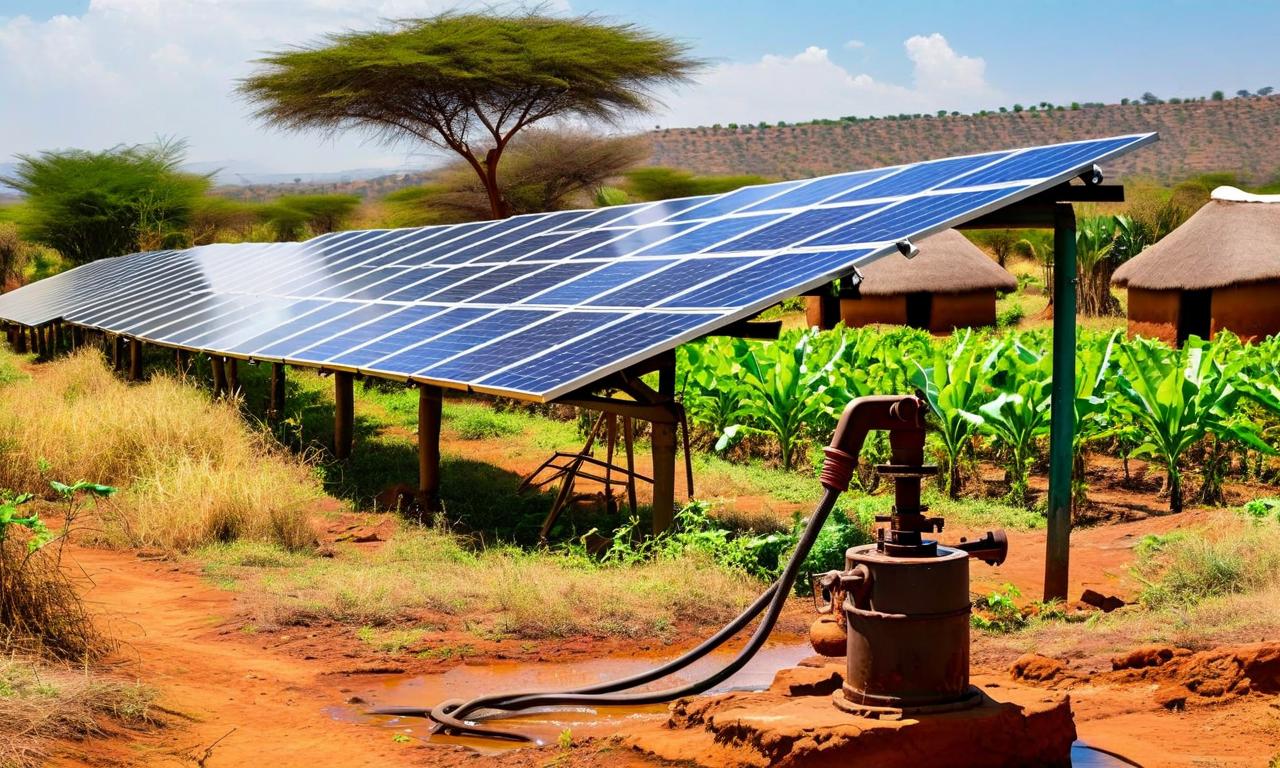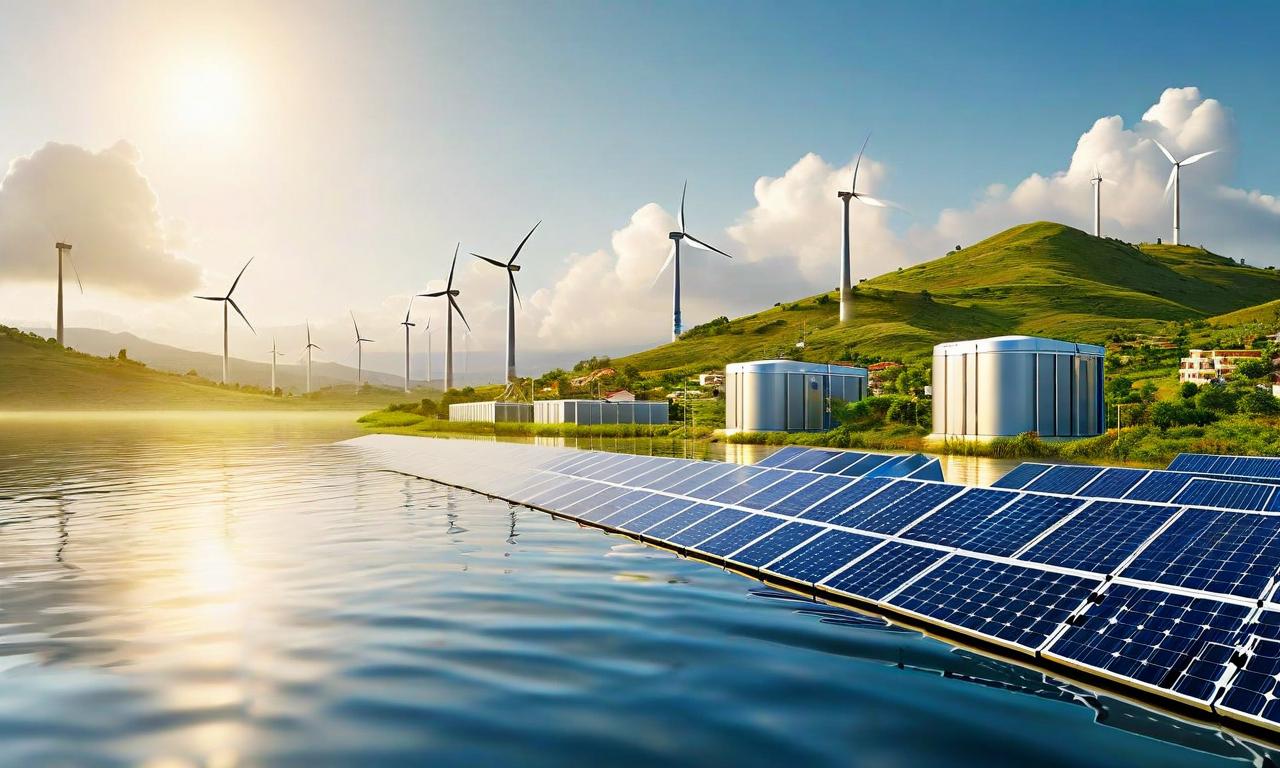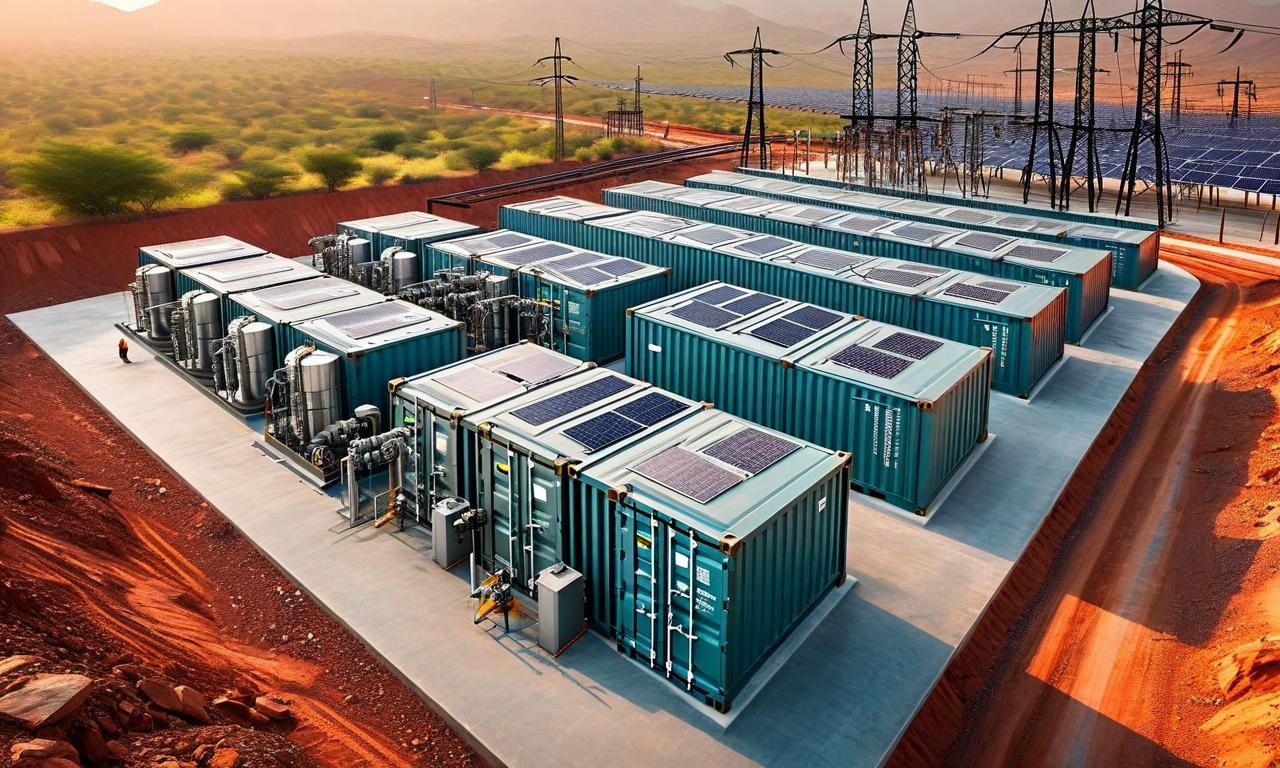African and Small Island Nations Seek Indian Partnerships for Off-Grid Solar Power Expansion
The 8th International Solar Alliance (ISA) assembly in New Delhi has become a platform for African and small island nations to strengthen partnerships with Indian companies for affordable off-grid solar power. Ghana signed a country partnership with ISA to deploy solar-powered pumps for food and water security. Dominica aims for 100% renewable power by 2030, with 75% from hydro and geothermal by early 2026. ISA Director General highlighted potential cost reductions through collective procurement, noting solar power costs 5 cents per unit compared to diesel-based electricity at 25-30 cents.

*this image is generated using AI for illustrative purposes only.
The 8th International Solar Alliance (ISA) assembly in New Delhi has become a focal point for African and small island nations looking to strengthen partnerships with Indian companies. These nations aim to expand affordable off-grid solar power access, marking a significant step towards sustainable energy solutions.
Ghana's Solar-Powered Initiative
Ghana has taken a proactive stance by signing a country partnership with ISA. The West African nation plans to deploy solar-powered pumps to enhance food and water security. This move comes as a strategic response to the country's current annual food import bill of $2 billion.
Dominica's Renewable Energy Targets
Dominica, a small island nation in the Caribbean, is setting ambitious renewable energy goals. The country's Foreign Affairs Minister highlighted that efficiency improvements could significantly reduce power costs. However, the nation faces unique challenges, particularly for floating solar projects due to the threat of cyclones.
| Dominica's Renewable Energy Targets | |
|---|---|
| Overall Target | 100% renewable power by 2030 |
| Interim Goal | 75% from hydro and geothermal by early 2026 |
Cost Comparison: Solar vs. Diesel
ISA Director General Ashish Khanna emphasized the potential for substantial cost reductions through collective procurement by small island nations. The cost difference between solar and diesel-based electricity is striking:
| Power Source | Cost per Unit |
|---|---|
| Diesel-based | 25-30 cents |
| Solar power | 5 cents |
This significant price difference underscores the economic benefits of transitioning to solar energy, especially for smaller nations.
Conclusion
The ISA assembly has highlighted the growing interest in renewable energy solutions, particularly solar power, among developing nations. As countries like Ghana and Dominica set ambitious targets and seek partnerships, the role of Indian companies in facilitating this transition becomes increasingly important. The collective approach to procurement and the focus on off-grid solutions could pave the way for more accessible and affordable clean energy in regions that need it most.





























